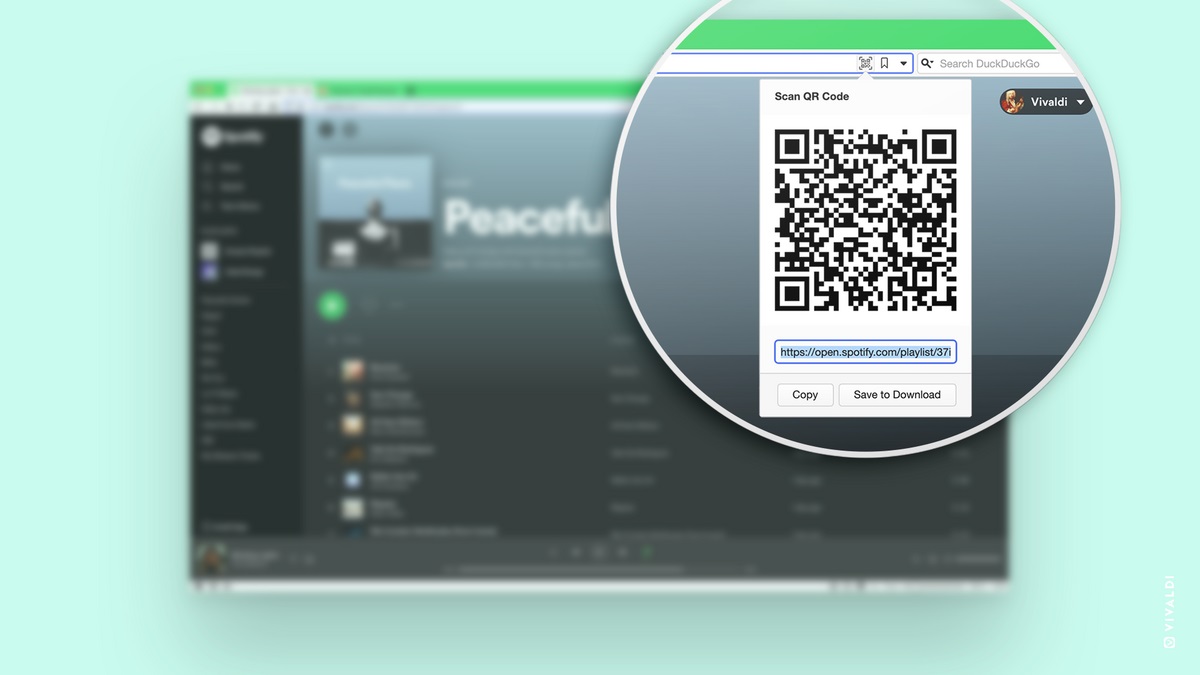
Vivaldi 3.5 Proprietary Browser Release Released, version that comes with improvements for the management of tabs within the browser, as well as a system to share URLs via QR code, also support for Widevine certification keys and more.
The browser is being developed by the forces of former Opera Presto developers and aims to create a customizable and functional browser that preserves the privacy of user data.
The main features include a tracking and ad blocker, note, history and bookmarks managers, private browsing mode, encrypted end-to-end sync, tab grouping mode, sidebar, configurator with a lot of settings, horizontal tab display mode and also in test mode built-in email client, rss reader and calendar.
The browser interface is written in JavaScript using the React library, the Node.js framework, Browserify, and various out-of-the-box NPM modules. Vivaldi builds are ready for Linux, Windows, Android, and macOS.
In previous versions, the open source project distributes the source code of the changes to Chromium. The implementation of the Vivaldi interface is written in JavaScript, available in source code, but under a proprietary license. Issues related to the availability of the Vivaldi source code and the reasons for choosing a non-free license are explained in a recently published article.
Main news in Vivaldi 3.5
This new version of the browser comes based on Chromium 87, with which Vivaldi 3.5 benefits dsupport for Widevine certification keys, playback of content from sites that use DRM (Netflix, Spotify, Prime Video, Disney+, etc.).
Another of the great novelties of this new version is in relation to with the eyelashes, since now introduced a new view of the list of grouped tabs. Therefore, it is possible to choose to open a page by default in a new tab in the background instead of in the foreground when clicking on a link, or to clone a tab in the background.
On the other hand, Vivaldi 3.5 adds a QR code system to easily share a URL. This new function can be found as a button to the right of the address bar generates a QR code, which we can share with a mobile device that can open the destination URL with the help of a QR reader.
Keep in mind that this function must be activated in the options and that in the future, other options will allow you to share this QR code.
Finally, in addition to some minor bug fixes and changes, Vivaldi 3.5 has customizable context menus from the Express panel, plus key combinations have been added to context menus.
Also, we can find a new option to open links in the background tab by default, as well as the selective disabling of Google services integrated in the browser and the possibility of being able to permanently show the button to close tabs.
Finally, of the improvements that we can find in the android version of the browser, the following are mentioned:
- Ability to selectively clear browsing data when exiting the browser
- Option to close all tabs on exit
- Sorting notes and bookmarks
- Ability to disable IP transmission for WebRTC.
- Improvements in Express Bar and in the browser interface.
How to install Vivaldi on Ubuntu?
If you want to try this browser to give it a try, you can only do it by getting its deb package that it provides us directly from its official site, you can buy it from this link.
After downloading it, you only have to install the package with your preferred package manager or the other method is through the terminal.
To do this, we just have to open the terminal and position ourselves in the folder where it was downloaded and execute the following command:
sudo dpkg -i vivaldi*.deb
With this, the browser will be installed, you just have to go to your applications menu to run it.